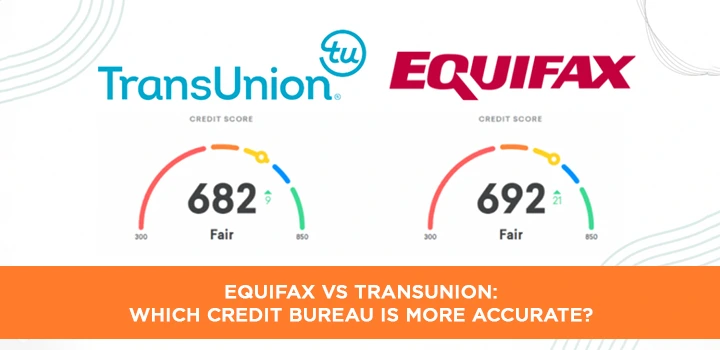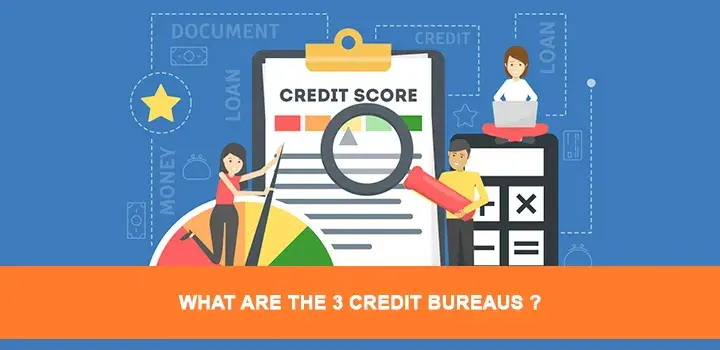-
Posted on: 15 Mar 2023

-
Important organizations that provide credit information about people and companies are credit bureaus. Two well-known financial firms used to evaluate creditworthiness and provide credit reports among the three main credit bureaus are Equifax and TransUnion. These businesses provide a broad spectrum of services meant to let individuals keep good financial records.
Still, there has always been a controversy over which credit bureau is more reliable. We shall thoroughly examine Equifax against TransUnion in this blog article to ascertain which one offers more accurate findings. Let us so go in and discover more.
Understanding the role of credit bureaus
Through data gathering and maintenance on individual credit histories, Credit bureaus contribute significantly to the financial ecosystem. These businesses collect credit records from several sources, including lenders and other financial organizations. Lenders, companies, landlords, and others may then analyze these records to decide whether to provide a person credit or other options.
Friendly reminder: You should carefully check your credit report and challenge any mistakes you may come across. Accessing financial possibilities and reaching your long-term financial objectives depend on good credit.
Comparing Equifax and TransUnion
Among the biggest credit reporting firms worldwide are Equifax and TransUnion. Though they provide somewhat comparable services, there are some variations between them that clients may want to know about.
Regarding the many credit reports they provide, Equifax and TransUnion are somewhat the same. Both firms provide credit reports with details like debt amounts, credit histories, and payment patterns. Furthermore providing credit monitoring and identity theft protection are Equifax and TransUnion.
Equifax distinguishes itself in one area—that of credit score—by emphasizing Among the numerous credit scoring systems Equifax provides, many lenders employ its own proprietary Equifax Credit Score throughout their credit decisions. TransUnion has teamed with other businesses to provide ratings and provides fewer credit scoring algorithms, nevertheless.
Regarding cost, both firms charge for their credit reports and other services. Still, the particular product and market will affect the precise rates. As advised by the Fair Credit Reporting Act, customers may get a free yearly credit report from every one of the credit agencies.
Choosing Equifax or TransUnion boils down to personal taste and what particular credit reporting services a customer wants. Both businesses are respectable and well-known in the field; customers may be sure they trust either one with their credit data.
Factors that affect credit score accuracy
In terms of determining one's creditworthiness, credit ratings are very important. Credit scores are not, however, a one-size-fits-all statistic. The correctness of credit ratings depends on many elements; some of them are covered here.
1. Errors and Inaccuracies:
Credit ratings depend on credit records, which could include mistakes and inconsistencies. Simple typographical mistakes to more major reporting mistakes—including negative information that shouldn't be there—these mistakes may vary in kind. Credit scores might be much affected by these errors, hence one should monitor their credit report.
2. Credit Utilization:
The percentage of the available credit a borrower is utilizing is known as Credit utilization. Credit ratings take credit use into account, so heavy use might lower credit scores. For instance, someone's credit use ratio would be 90% if they carried a $9,000 load on a credit card with a $10,000 limit, which would lower their credit score.
3. Payment History:
Another important component influencing credit ratings is Payment history. Late payments, delinquencies, and defaults all lower credit scores—especially if they are recent. Thus, it's essential to pay on time and, if at all possible avoid missing any installments.
4. Length of Credit History:
Credit ratings take into account credit history, hence length of credit history is usually good news for creditors. Starting credit early on and keeping a strong credit record over time is therefore very vital.
5. Types of Credit:
Credit ratings also take into account the kinds of credit that a borrower carries. Generally speaking, credit ratings benefit borrowers with a mix of credit—that is, credit cards, loans, and mortgages—versally from those who just have one kind of credit.
These elements may influence credit score accuracy among other things. Understanding these elements is crucial, hence, whenever at all feasible take action to raise credit ratings.
What to do if you find errors on your credit report
To be sure all the information on your credit report is correct, you should routinely review it. Should mistakes on your credit report surface, you should move to fix them. First, politely speaking, you should get in touch with the credit reporting organization that generated the report. Usually, one may do this via phone, internet, or letter.
Specify exactly the mistakes you have discovered, including the name of the lender or creditor, the account number, and the specifics of the erroneous information. The credit reporting bureau will look into the disagreement and get in touch with the creditor to change the records. To guarantee that the disagreement is settled, one should routinely follow up with the credit reporting agency. The credit reporting agency will give you an updated credit report with the rectified information after the dispute is settled.
Acting to fix mistakes on your credit report will assist in guaranteeing that your credit history is accurate and current.
7 Tips for improving your credit score
Third-person point of view and a polite tone of speech help you to improve your credit score:
- Pay all of your payments, including loans and credit card balances, on schedule. Late payments may lower credit ratings.
- maintain credit card balances low; high credit card balances may also adversely impact credit scores, hence it's advisable to maintain them as low as feasible.
- Maintaining credit accounts active even if they are not being utilized can help to improve credit ratings by displaying a longer credit history.
- Apply for no more than one credit account at once. People's credit scores may suffer every time they apply for a fresh credit account. Applying for credit should only be done so very seldom and when necessary.
- Review credit reports often. To guarantee that all information on their credit reports is correct and current, people should review them at least once a year.
- Reducing outstanding debt can help to raise credit ratings as it indicates a person's capacity for sensible debt management.
- Credit counselors or financial advisers may assist individuals in comprehending their credit ratings and provide recommendations on how to raise them.
Following these guidelines can help one raise their credit score and raise their possibilities of getting authorized for credit cards, loans, and other financial goods with better terms and conditions.
Conclusion and final thoughts:
It is not easy to decide which credit agency, Equifax or TransUnion, is more accurate. Both businesses have strengths; the authenticity of the credit reports from both agencies relies on the data supplied by banks, creditors, and lenders, thereby providing financial information.
Remember ultimately that your creditworthiness also depends on how effectively you handle your credit accounts, prevent late payments, and have a low credit use ratio.
Improve your credit score now—call (888) 803-7889 for a free consultation!








